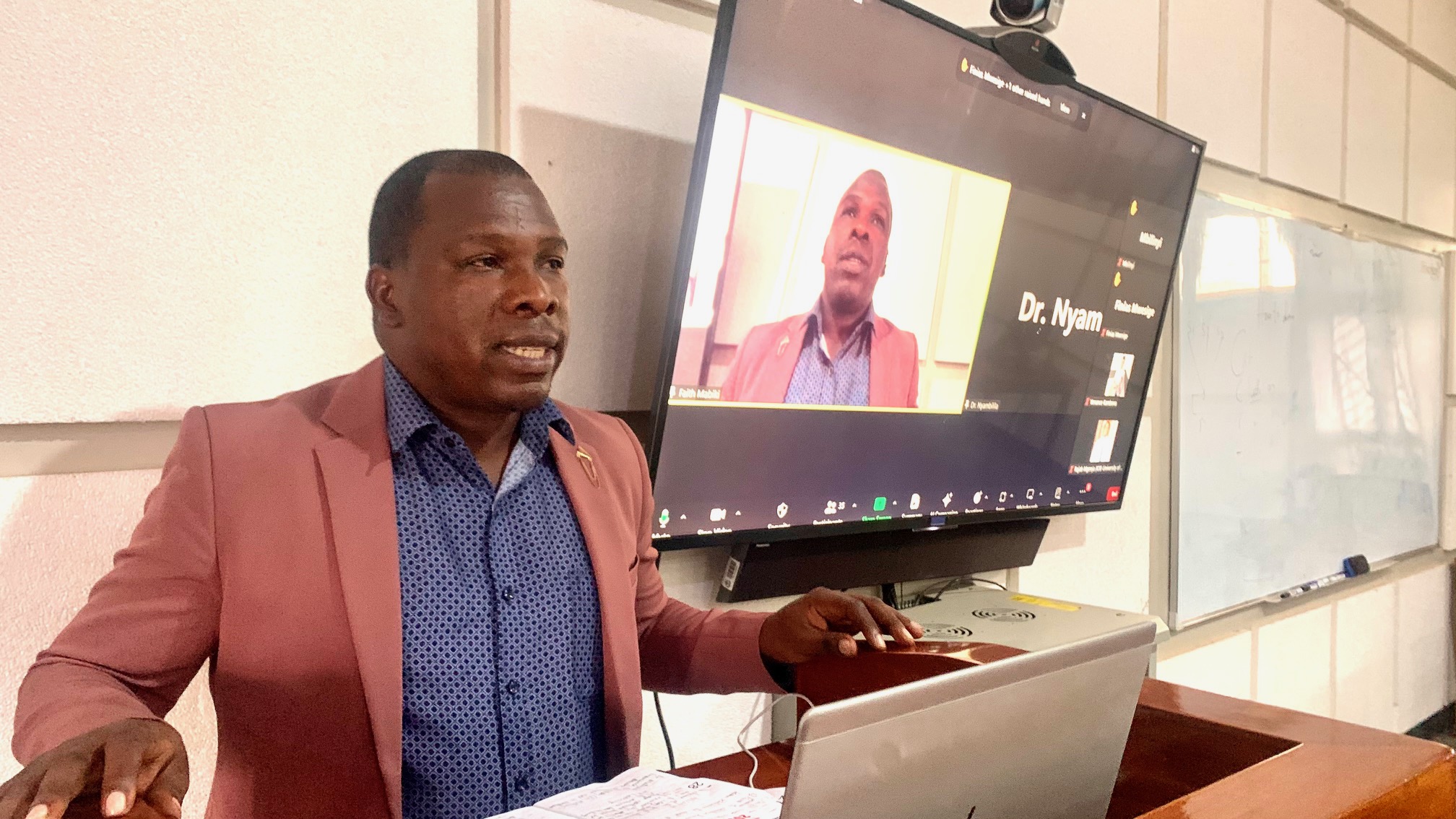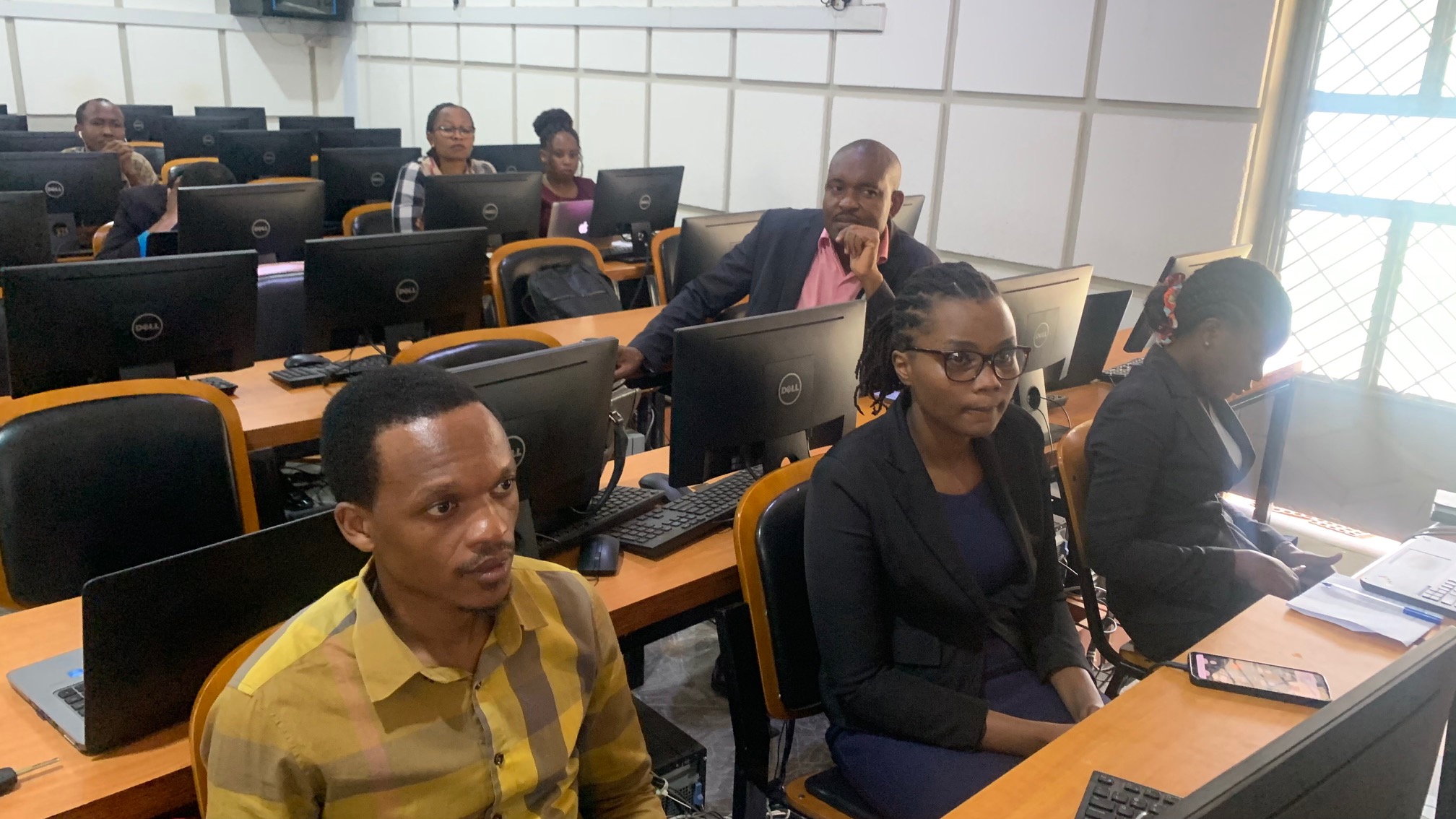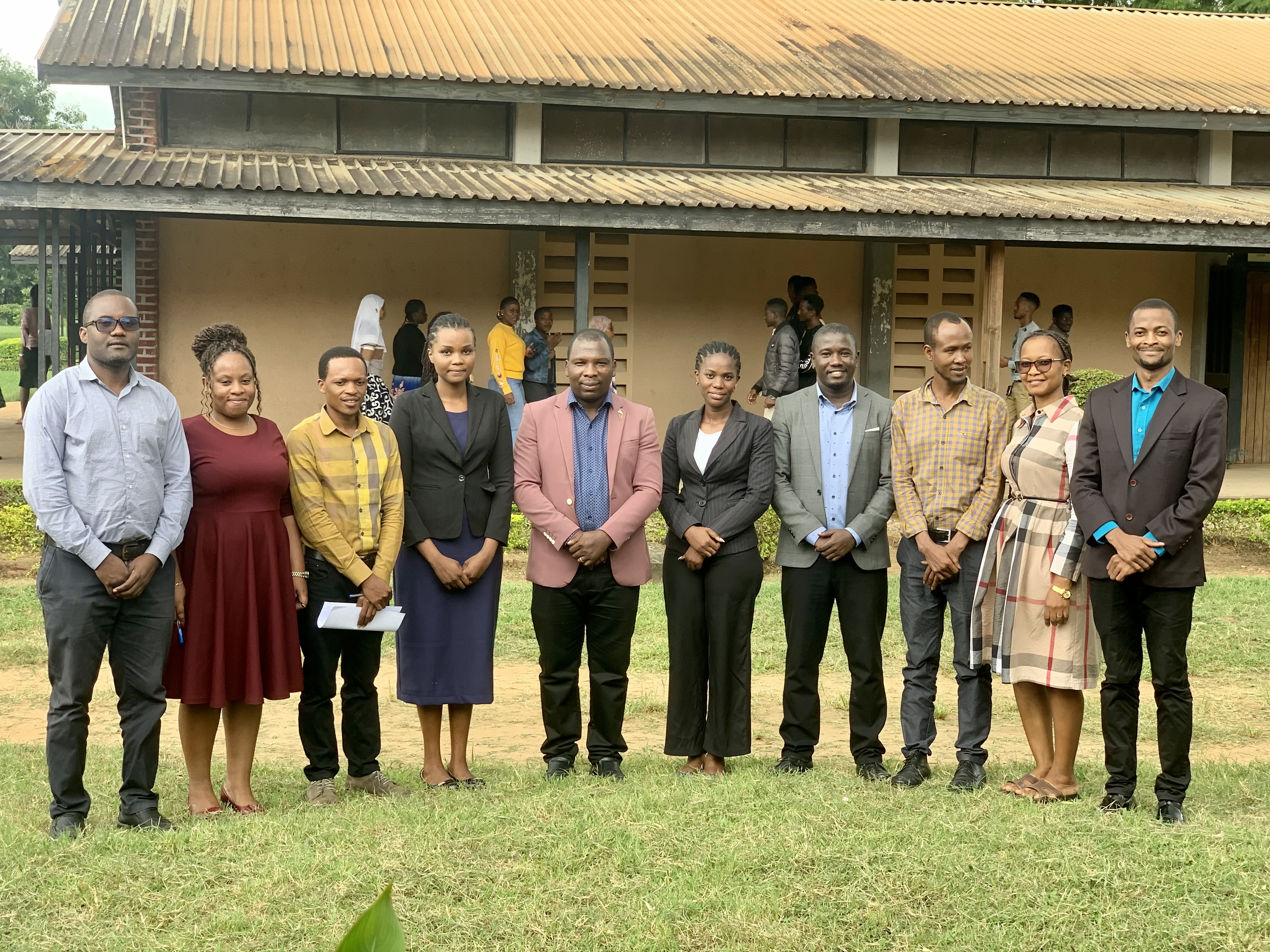Education Stakeholders in Tanzania have recommended the Government to collaborate with Universities to formulate policies and guidelines that will coordinate the use of artificial intelligence in education and enable the country to benefit from this vital technology that have significant impacts in education and community development.

Principal of the College of Natural and Applied Sciences, Dr. Geoffrey Karugila officiate opening the discussion on behalf of Vice Chancellor of the Sokoine University of Agriculture Prof. Raphael Chubunda.
The call has been made by lecturers, students and other education Stakeholders from Sokoine University of Agriculture (SUA), University of Dar as Salaam (UDSM), Mzumbe University, Dar es Salaam Institute of Technology, and The Institute of Finance Management (IFM) during the panel discussion on the “Unlocking the Potential of Artificial Intelligence in Higher Learning” conducted Virtually and Physically at SUA, Morogoro, Tanzania.
Speaking during his presentation on the “Impacts of AI on Higher Education Learning and Teaching: Opportunity and Challenges”, Dr. Alcardo Alex Barakabitze from SUA said AI is becoming more attainable in every sector of economy, and higher education is no exception. This opens the possibility for higher education services to become scalable at an unprecedented rate, both inside and outside the classroom eenvironments.
“AI –powered systems are streamlining administrative tasks such as admissions, student support services, and resource allocation; chatbots and virtual assistants are being used to provide 24/7 support to students and staff, reducing the workload on administrative staff but also can assist in ensuring the quality of education by analysing students’ performance data and identifying areas where improvement is needed” Dr. Alcardo Barakabitze explained.
Dr. Alcardo Barakabitze stressed the urgency, stating, “In all these contexts where AI is used, it is imperative for our country to have Guidelines, Strategies, and Policies for using AI in education. Currently, we are without an AI National Policy, Strategy, or Guidelines, and our universities also lack these crucial documents. Without them, we cannot have a unified direction or understanding as a nation on AI usage. This is a pressing issue that needs to be addressed promptly."
Speaking on behalf of Vice Chancellor of the Sokoine University of Agriculture Prof. Raphael Chubunda, the Principal of the College of Natural and Applied Sciences, Dr. Geoffrey Karugila, said this panel discussion topic promises to offer enlightening insights, stimulating discussions, and actionable strategies that will shape the future of teaching and learning.
Dr. Karugila underscored the responsibility, stating, “AI is revolutionizing education, but we must remember that with great power comes great responsibility. As we integrate AI into higher education, it's crucial to do so responsibly and ethically, ensuring fairness, transparency, and accountability. We must be vigilant in ensuring that AI is used for the benefit of all, without compromising on ethical standards. “
He added, “By gaining profound knowledge of AI's effects and opportunities, we can identify actionable steps to integrate AI for educational excellence, and this includes exploring responsible AI use in personalised learning and formulating policies and regulations to guide its implementation, so through critical thinking, practical insights, and collaboration, we can empower stakeholders to navigate the complexities of the digital age and drive positive change in higher learning”.
In his contribution, a Panelist from the University of Dodoma, Dr Jabhera Matogolo, said that UDOM, in collaboration with the Nelson Mandela Institution of Science and Technology in Arusha, has designed a new state-of-the-art academic program for AI. Soon, they will launch a Master of Science in Artificial Intelligence and Machine Learning and a Bachelor of Science in Artificial Intelligence and Machine Learning Engineering at the University of Dodoma. They are also going to launch a Master of Science in Artificial Intelligence and Machine Learning Engineering at Nelson Mandela. They will also launch the same program at the postgraduate level.
“AI is no longer a fiction. We are trying to address the challenges coming up on the ground by ensuring that we build the capacity of Tanzanians who will work and use this technology to help our country in different sectors that will need AI experts. As the previous speaker explained, the demand is high as this technology grows,” Said Dr. Matogolo.
Speaking on behalf of the students, the Panelist, Mr. Leonard Fuime, the Minister of Education from Mzumbe University, expressed his concerns that students' use of ChatGPT, Qbolt, and other programs could result in incompetent graduates in the market.

In his closing remarks, the Head of the Department of Informatics and Information Technology, Dr Michael Mahenge, acknowledged the excellent participation of all participants from different universities for their constructive contribution on the topic, which will help to open more discussion as a country on how to use this technology in education.
“We have received experience from various people, which is an indication that there are initiatives done by individuals and institutions regarding the use of AI in different sectors to ensure that we leverage this technology in higher learning institutions, but also there are challenges that some speakers raised that got an explanation from the Panelist, but we need to keep discussion so we can benefit from it” Explained Dr. Mahenge.
He also commended the excellent work done by the Sokoine University of Agriculture through the YEES LAB project, led by Dr Kadege Fue, in generating a lot of available data for public use.
“Lastly, allow me to thank the organizers of this panel discussion, who are Master students taking a Master's in Information and Knowledge Management here at SUA as part of their study in the Knowledge Sharing for Development course. Let me invite you, friends, and family members to come and study this important course in the market,” said Dr Mahenge.






